Supermarket price wars have decimated the value of the Christmas beer market - but there might be signs that the situation is changing.
For the last 10 years an unprecedented level of cut- throat pricing has sent the value of beer into a downward spiral. At Christmas this war among the multiples reaches a frenzied level as each supermarket attempts to steal more footfall from its competition.
For your average independent retailer it may have appeared as though the giant breweries were either asleep or colluding in this event. Although this was far from the truth - there are many within the beer industry who have long been warning of the consequences of dramatic discounting - it is true that there seems to be a growing restlessness in the beer industry which is becoming loud enough to be heard by all. The disgruntled murmur emanating from the breweries is fast becoming a shout for change.
According to Inbev UK managing director of take home sales Stuart MacFarlane, retailers missed out on a whopping £125m in value at Christmas last year, with £40m of that on premium lager alone, which would have been theirs had beer prices kept pace with inflation in the last decade. “If that continues in the next 10 years the industry will dramatically change shape,” says MacFarlane.
In 1995, the year that the multiples began their aggressive stance on price, a litre of premium lager cost £2.19. Last year it cost £1.86, MacFarlane points out. “In 10 years this industry has managed to devalue itself pretty quickly.”
What makes the situation all the more perplexing - and a source of great irritation for smaller retailers - is that there is no need for it, according to MacFarlane: “I can’t understand why the most natural consumption period for beer is at the lowest price.” In 1995, the top 10 brands accounted for 30% of sales (source: AC Nielsen/Inbev). Last year that had leapt to 61%. “I just don’t think at Christmas there’s any need to do a lot of promotion when the top 10 brands account for that much of the market.” Scottish Courage Brands sales director Keith Hogg, whose views on the devaluation of the beer market are well documented, says consumers aren’t even thinking about price in the final days of shopping at Christmas: “Bizarrely there’s not that much focus on price in the last days because people know they have to buy beer.”
Both men predict further ‘short, sharp, shock’ activity of between one and five-day promotions: “I don’t see a way out. I expect the retailers to use price as a traffic driver. They will always find someone willing to do a deal,” says MacFarlane. Hogg agrees: “The way the market has progressed this year, we’re going to see an incredibly competitive Christmas.” However, both say that some of the more ridiculous price points of previous years will probably be avoided and MacFarlane hopes this year could be a pivotal point in the downward spiral of devaluation.
Says Hogg, “Assuming we do get a focus on big brands, we may even see price inflation this Christmas, though it will be small. Our view at the moment is that the average price of Fosters will be higher than last Christmas.”
What this means for c-stores is that opportunities must lie in areas other than price. The key to success is remembering that Christmas beer shopping is unlike any other season: consumers are wearing three hats when they come into the store, as gift-givers, drinkers and hosts. Focusing on consumer needs could spell opportunity for the Christmas period.
For the shopper, the greatest drive over Christmas is to keep everyone happy, which is why many change their habits at this time. A customer who, year round, will exclusively buy wine, will start to include beer in their basket in the run-up to Christmas - either because they remember that Dad likes a particular brand or they’re having the neighbours round and want to appear the generous host. Christmas shoppers don’t even worry whether or not they will drink half the brands they’re buying. According to Diageo, 59% of Guinness Draught four-pack shoppers only buy the drink at Christmas. No one wants to be seen as tight-fisted when it comes to food and drink at Christmas - at that time of year there is no such thing as ‘too much’.
Customers are also on the lookout for top-up opportunities as the party season begins to hit - and it’s obviously here that c-stores come into their own. Focus should be on chilled and slightly larger packs - including eights, 12s and 15s. Says Hogg: “Different pack sizes enable price points to be hit without a significant price difference.” The move to multipacks in c-stores is slow but sure and is set to increase this year with more manufacturers targeting the independents with special packaging. Scottish Courage, for instance, has a range of small and medium packs aimed purely at the convenience sector. “There isn’t a lot of focus on medium packs in the multiples, which works well,” says Hogg “You don’t suddenly need to start selling 20 or 24 packs if you don’t want to.”
Barrel Booze director of sales and marketing Imran Younus says: “If a multiple is running an offer on 24x440ml cans of Carling Black Label then the independent should run an offer on Carling 330ml bottles or 500ml cans or 24x440ml cans of another brand with a similar perceived quality.” Barrel Booze, distributors of Primus, is set to launch its new brand Luxus (see page 62) this month in time for the Christmas period. Says Younus: “The launch of our own lager brand in three different styles is the biggest investment and the most important project that we have undertaken to date.”
Younus says that while big brands are the focus at Christmas, there is still a place for own brand and smaller label beers. He suggests keeping the big brands at the back of the shop, forcing shoppers to walk past the rest of the beer fixture including own brand, speciality beer, ale and gift packs: “Get as many gift packs as you can on display. People often buy beer as a present. Pricing on these sorts of products need not be as competitive as on the big brands, where independents feel they need to compete with the multiples. Consequently, independents will see a high profit return on their Christmas beer sales.”
According to Coors Brewers sales director Kevin Brownsey: “One of the great advantages that independents have over supermarkets is that they attract more impulse shoppers. They have to take advantage of this opportunity and probably the best way to get people to buy lager on impulse is to sell it cold. You can’t overestimate the importance of selling beer cold.”
Scottish Courage Brands will be focusing on cold, building a complete range of cold variants of its brands in the on trade, backed by a £2m campaign. For retailers the company has launched new ‘chilled’ Fosters packaging, designed to highlight its chilled factor.
Coors’ Brownsey says that the most important message is to range properly and allocate space accordingly: “It’s a simple message but its amazing how many retailers run out of the major brands every year.”
ALE ‘N’ HEARTY
As well as the established lager brands, it’s also important to keep the ale and specialist beer drinkers happy over Christmas. There’s been some interesting new product development this year, including Kronenbourg Blanc and Artois Bock, Coors Fine Light and Brahma, and it’s important not to forget them in the rush to stock the big brands.
While much of the focus at Christmas is on lager, there is still an opportunity for ales. Hogg says: “Experience shows that we need to get the premium and standard lager offering right at Christmas. However, there is a largely untapped ale opportunity which shouldn’t be ignored.”
Greene King Brewing Company take home director Neil Jardine says: “The conversations we’ve had with our customers have been focused on the desire for the bottled ale category to be premium, continue to meet consumer demand and to deliver superior margins. Thankfully, retailers, and some brewers, have embraced the premium opportunity within this category and have retained value by not going down the deep discounting route.”
TIMING IS EVERYTHING
One of the biggest opportunities for retailers this year is the fact that Christmas falls on a Sunday, meaning a clear week of trading. Says Hogg: “You know there are people who haven’t bought anything 24 hours before. If you’re sitting there on Christmas Eve at 10pm, where do you go? The c-store. But you’re not going to buy huge cases, you’re going to buy two or three four-packs.” So with any luck, this year should mean glad tidings for all.
Beer for cheer: promotions running this year
DIAGEO is spending £5m on marketing Guinness Draught this Christmas and has returned to the ‘Good Things Come to Those Who Wait’ campaign. The TV ad began on October 3 and will run through to Christmas. A cinema ad will run through November and December.
A special range of price marked packs for Independents is available from COORS BREWERS this Christmas on Carling, Grolsch and Coors. Christmas display materials carrying the message ‘Best Served Cold This Christmas’ are available on each brand and on the range.
Coors Fine Light Beer will also be carrying an ‘Epic Stakes’ promotion: consumers can send off coupons to claim a free poker set and be entered into a prize draw to win $10,000 to spend in Deadwood, South Dakota, USA. The packs are: Carling 8 x 275ml bottles, £4; Carling 9 x 330ml cans, £5; Grolsch 6 x 500ml cans, £5; Grolsch 8 x 300ml bottles, £5; Coors 4 x 300ml bottles, £3.29; Epic Stakes promotion Coors 4 x 500ml cans, £3.99.
INBEV are offering Brahma in 12 packs to independents through cash and carry outlets with an rrp of £11.99.
For the last 10 years an unprecedented level of cut- throat pricing has sent the value of beer into a downward spiral. At Christmas this war among the multiples reaches a frenzied level as each supermarket attempts to steal more footfall from its competition.
For your average independent retailer it may have appeared as though the giant breweries were either asleep or colluding in this event. Although this was far from the truth - there are many within the beer industry who have long been warning of the consequences of dramatic discounting - it is true that there seems to be a growing restlessness in the beer industry which is becoming loud enough to be heard by all. The disgruntled murmur emanating from the breweries is fast becoming a shout for change.
According to Inbev UK managing director of take home sales Stuart MacFarlane, retailers missed out on a whopping £125m in value at Christmas last year, with £40m of that on premium lager alone, which would have been theirs had beer prices kept pace with inflation in the last decade. “If that continues in the next 10 years the industry will dramatically change shape,” says MacFarlane.
In 1995, the year that the multiples began their aggressive stance on price, a litre of premium lager cost £2.19. Last year it cost £1.86, MacFarlane points out. “In 10 years this industry has managed to devalue itself pretty quickly.”
What makes the situation all the more perplexing - and a source of great irritation for smaller retailers - is that there is no need for it, according to MacFarlane: “I can’t understand why the most natural consumption period for beer is at the lowest price.” In 1995, the top 10 brands accounted for 30% of sales (source: AC Nielsen/Inbev). Last year that had leapt to 61%. “I just don’t think at Christmas there’s any need to do a lot of promotion when the top 10 brands account for that much of the market.” Scottish Courage Brands sales director Keith Hogg, whose views on the devaluation of the beer market are well documented, says consumers aren’t even thinking about price in the final days of shopping at Christmas: “Bizarrely there’s not that much focus on price in the last days because people know they have to buy beer.”
Both men predict further ‘short, sharp, shock’ activity of between one and five-day promotions: “I don’t see a way out. I expect the retailers to use price as a traffic driver. They will always find someone willing to do a deal,” says MacFarlane. Hogg agrees: “The way the market has progressed this year, we’re going to see an incredibly competitive Christmas.” However, both say that some of the more ridiculous price points of previous years will probably be avoided and MacFarlane hopes this year could be a pivotal point in the downward spiral of devaluation.
Says Hogg, “Assuming we do get a focus on big brands, we may even see price inflation this Christmas, though it will be small. Our view at the moment is that the average price of Fosters will be higher than last Christmas.”
What this means for c-stores is that opportunities must lie in areas other than price. The key to success is remembering that Christmas beer shopping is unlike any other season: consumers are wearing three hats when they come into the store, as gift-givers, drinkers and hosts. Focusing on consumer needs could spell opportunity for the Christmas period.
For the shopper, the greatest drive over Christmas is to keep everyone happy, which is why many change their habits at this time. A customer who, year round, will exclusively buy wine, will start to include beer in their basket in the run-up to Christmas - either because they remember that Dad likes a particular brand or they’re having the neighbours round and want to appear the generous host. Christmas shoppers don’t even worry whether or not they will drink half the brands they’re buying. According to Diageo, 59% of Guinness Draught four-pack shoppers only buy the drink at Christmas. No one wants to be seen as tight-fisted when it comes to food and drink at Christmas - at that time of year there is no such thing as ‘too much’.
Customers are also on the lookout for top-up opportunities as the party season begins to hit - and it’s obviously here that c-stores come into their own. Focus should be on chilled and slightly larger packs - including eights, 12s and 15s. Says Hogg: “Different pack sizes enable price points to be hit without a significant price difference.” The move to multipacks in c-stores is slow but sure and is set to increase this year with more manufacturers targeting the independents with special packaging. Scottish Courage, for instance, has a range of small and medium packs aimed purely at the convenience sector. “There isn’t a lot of focus on medium packs in the multiples, which works well,” says Hogg “You don’t suddenly need to start selling 20 or 24 packs if you don’t want to.”
Barrel Booze director of sales and marketing Imran Younus says: “If a multiple is running an offer on 24x440ml cans of Carling Black Label then the independent should run an offer on Carling 330ml bottles or 500ml cans or 24x440ml cans of another brand with a similar perceived quality.” Barrel Booze, distributors of Primus, is set to launch its new brand Luxus (see page 62) this month in time for the Christmas period. Says Younus: “The launch of our own lager brand in three different styles is the biggest investment and the most important project that we have undertaken to date.”
Younus says that while big brands are the focus at Christmas, there is still a place for own brand and smaller label beers. He suggests keeping the big brands at the back of the shop, forcing shoppers to walk past the rest of the beer fixture including own brand, speciality beer, ale and gift packs: “Get as many gift packs as you can on display. People often buy beer as a present. Pricing on these sorts of products need not be as competitive as on the big brands, where independents feel they need to compete with the multiples. Consequently, independents will see a high profit return on their Christmas beer sales.”
According to Coors Brewers sales director Kevin Brownsey: “One of the great advantages that independents have over supermarkets is that they attract more impulse shoppers. They have to take advantage of this opportunity and probably the best way to get people to buy lager on impulse is to sell it cold. You can’t overestimate the importance of selling beer cold.”
Scottish Courage Brands will be focusing on cold, building a complete range of cold variants of its brands in the on trade, backed by a £2m campaign. For retailers the company has launched new ‘chilled’ Fosters packaging, designed to highlight its chilled factor.
Coors’ Brownsey says that the most important message is to range properly and allocate space accordingly: “It’s a simple message but its amazing how many retailers run out of the major brands every year.”
ALE ‘N’ HEARTY
As well as the established lager brands, it’s also important to keep the ale and specialist beer drinkers happy over Christmas. There’s been some interesting new product development this year, including Kronenbourg Blanc and Artois Bock, Coors Fine Light and Brahma, and it’s important not to forget them in the rush to stock the big brands.
While much of the focus at Christmas is on lager, there is still an opportunity for ales. Hogg says: “Experience shows that we need to get the premium and standard lager offering right at Christmas. However, there is a largely untapped ale opportunity which shouldn’t be ignored.”
Greene King Brewing Company take home director Neil Jardine says: “The conversations we’ve had with our customers have been focused on the desire for the bottled ale category to be premium, continue to meet consumer demand and to deliver superior margins. Thankfully, retailers, and some brewers, have embraced the premium opportunity within this category and have retained value by not going down the deep discounting route.”
TIMING IS EVERYTHING
One of the biggest opportunities for retailers this year is the fact that Christmas falls on a Sunday, meaning a clear week of trading. Says Hogg: “You know there are people who haven’t bought anything 24 hours before. If you’re sitting there on Christmas Eve at 10pm, where do you go? The c-store. But you’re not going to buy huge cases, you’re going to buy two or three four-packs.” So with any luck, this year should mean glad tidings for all.
Beer for cheer: promotions running this year
DIAGEO is spending £5m on marketing Guinness Draught this Christmas and has returned to the ‘Good Things Come to Those Who Wait’ campaign. The TV ad began on October 3 and will run through to Christmas. A cinema ad will run through November and December.
A special range of price marked packs for Independents is available from COORS BREWERS this Christmas on Carling, Grolsch and Coors. Christmas display materials carrying the message ‘Best Served Cold This Christmas’ are available on each brand and on the range.
Coors Fine Light Beer will also be carrying an ‘Epic Stakes’ promotion: consumers can send off coupons to claim a free poker set and be entered into a prize draw to win $10,000 to spend in Deadwood, South Dakota, USA. The packs are: Carling 8 x 275ml bottles, £4; Carling 9 x 330ml cans, £5; Grolsch 6 x 500ml cans, £5; Grolsch 8 x 300ml bottles, £5; Coors 4 x 300ml bottles, £3.29; Epic Stakes promotion Coors 4 x 500ml cans, £3.99.
INBEV are offering Brahma in 12 packs to independents through cash and carry outlets with an rrp of £11.99.
















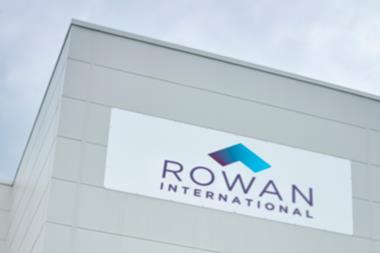
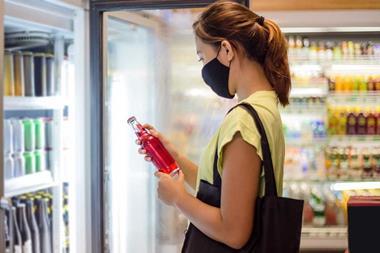

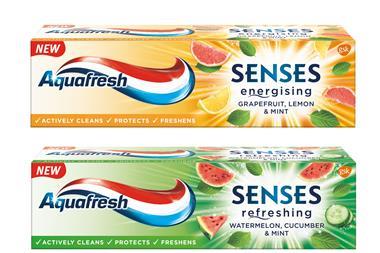
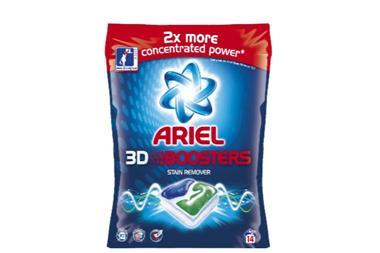

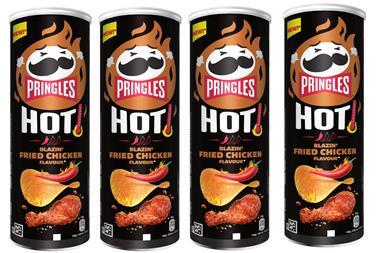

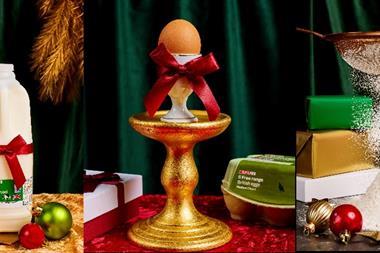

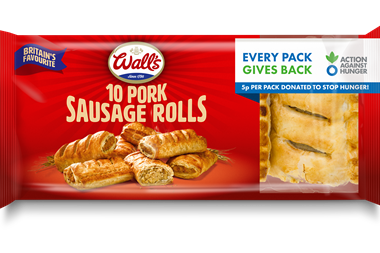
No comments yet